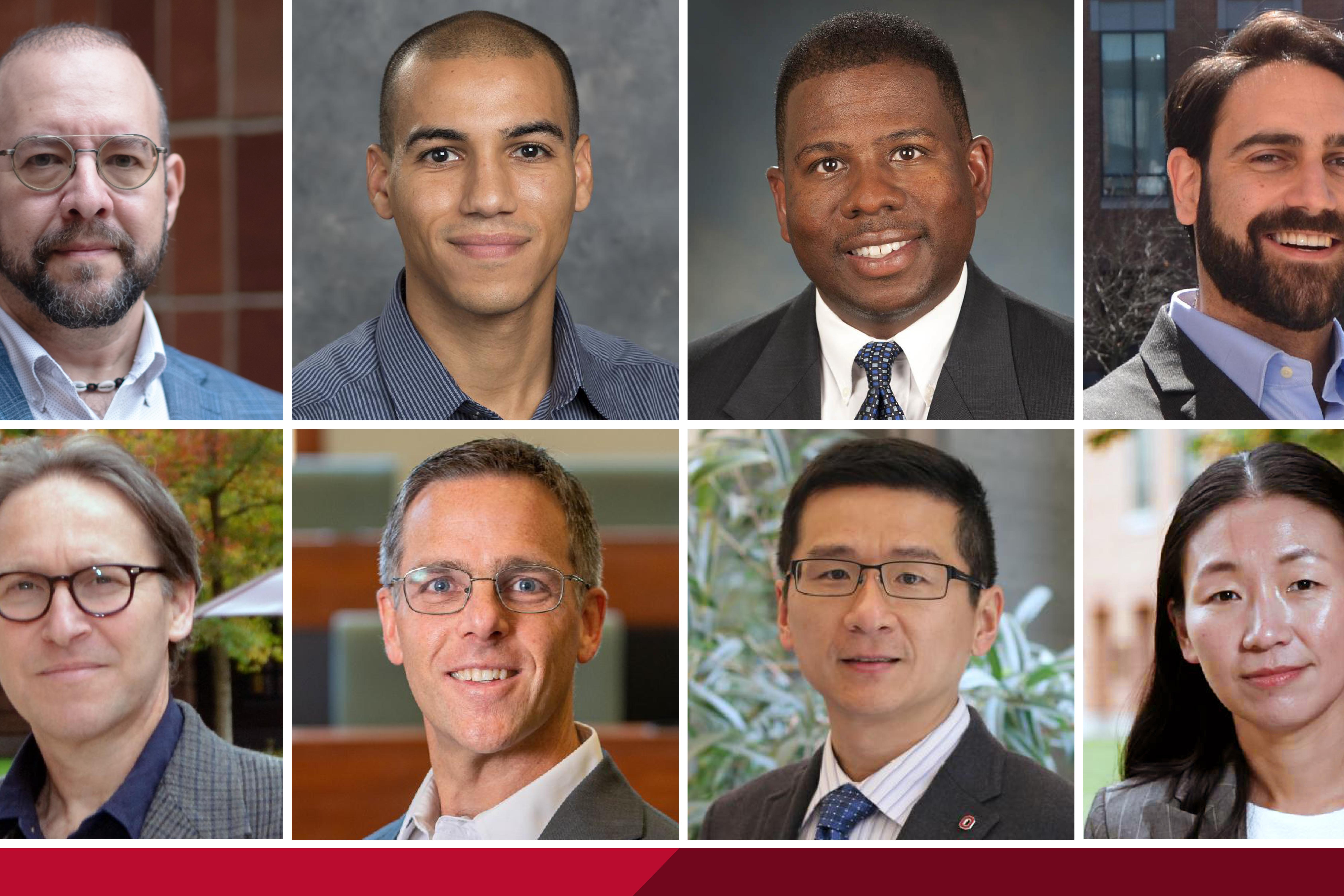Fisher Research and Insights
Forefront

July 31, 2020
Bloomberg
Bloomberg
When Tesla hits the S&P 500, it’ll spark the wildest passive trade ever
As Tesla prepares to join the S&P 500, research by Rene Stulz, the Everett D. Reese Chair of Banking and Monetary Economics, and his colleagues reveals being listed on the index does not provide the same return as it used to.

July 31, 2020
MarketWatch
MarketWatch
Why the S&P 500 may now be easier to beat and what this means for your investments
Tesla could be the latest example of how inclusion in the S&P 500 weakens a company’s stock performance. According to research from Rene Stulz, the Everett D. Reese Chair of Banking and Monetary Economics, and his colleagues, beginning around a decade ago, getting added to the S&P 500 began to cause a company's stock to drop. This information has caused some to hypothesize that the S&P 500 could become easier to time and to beat.

July 30, 2020
TheStreet
TheStreet
Americans on owing money to the IRS: "No big deal"
Owing money to the IRS is not a pleasant experience. Historically, it's been viewed as a major taboo, not to be discussed, but definitely needing to be dealt with. In recent years, even before the pandemic, Americans have grown almost indifferent to the "owed tax" experience. A new study by Itzhak Ben-David, the Neil Klatskin Chair in Finance and Real Estate at Fisher, and his colleagues, many American taxpayers have "surprisingly" adjusted their standard of living when they owe money to the IRS versus when they receive tax refunds.

July 28, 2020
The Ohio State University
The Ohio State University
Owe the IRS? No problem, some Americans say
A new study shows the surprising way that many American taxpayers adjust their standard of living when they owe money to the IRS versus when they receive tax refunds. Researchers, including Itzhak Ben-David, the Neil Klatskin Chair in Finance and Real Estate, found that when households received tax refunds, they immediately started spending that new money. But those same households didn’t cut their spending in years when they owed taxes to the IRS.

July 27, 2020
MarketWatch
MarketWatch
Tesla shares have surged on hope of inclusion in the S&P 500. But does being added to an index help a stock?
It used to be good for stocks to be added to indexes, but that is changed in the past decade or so, according to new research from Rene Stulz, the Everett D. Reese Chair of Banking and Monetary Economics, and his colleagues.

July 22, 2020
The National Center for the Middle Market
The National Center for the Middle Market
2Q 2020 Middle Market Indicator reports cautious outlook amid COVID-19
COVID-19 has produced conditions never before seen in the eight-year history of the Middle Market Indicator (MMI). Fewer companies than ever say their past-year performance has improved compared to the historical MMI average. Both revenue and employment growth rates are negative and many companies have put investment plans on hold. Despite the data, middle market leaders see better times ahead.

July 21, 2020
msn
msn
How to apologize: The 6 steps of the perfect apology
What makes for a good apology? You have to mean it, sure. But there’s a narrative structure that a good apology should follow. Roy Lewicki, professor emeritus of management and human resources, is an expert in the art of negotiation as well as rebuilding trust. He’s spent years researching the ideal apology, and he’s broken it down the perfect apology into six components.

July 20, 2020
TheMarker
TheMarker
The scary picture of hedge funds: At least half of the profits remain with executives
International coverage of research by Itzhak Ben-David, the Neil Klatskin Chair in Finance and Real Estate, reveals that because fund managers invest in a scattered portfolio of hedge funds and because of the jumps from fund to fund, investment profits are greatly diminished.
July 19, 2020
The Washington Post
The Washington Post
Stock buybacks and a shaky economy
A new study from Rene Stulz, the Everett D. Reese Chair of Banking and Monetary Economics, and a colleague shows how profits are distributed — and it has some surprising conclusions. Total payouts to shareholders rose from 19 percent of operating profits from 1971-1999 period to 32 percent in 2000-2017; and buybacks alone accounted for 55 percent of the distribution in the 2000-2017 period, up from 22 percent in the 1971-1999 period. To emphasize: Stock repurchases soared.

July 15, 2020
The Ohio State University
The Ohio State University
In the sharing economy, consumers see themselves as helpers
The peer-to-peer business model of firms like Uber or Airbnb is changing how consumers view some service providers, says John Costello, lead author of a new study and a doctoral candidate in marketing at Fisher.

July 14, 2020
The Ladders
The Ladders
This is the absolute worst kind of gift to give
A new study from Assistant Marketing Professor Grant Donnelly has a piece of gift-giving advice. Whatever you do, don’t tell the recipient your gift will save them money. According to the research, people often feel ashamed and even disrespected after receiving a “money-saving” gift from someone else.

July 13, 2020
The Ohio State University
The Ohio State University
Researchers find the worst reason to give a gift
Here’s a good way to make sure a friend hates a gift from you: Say it will save him money. In a series of studies, researchers found that people reacted negatively to gifts that they were told – or that they inferred – were given to help them save money. Receiving this kind of present makes a person feel inferior to the gift-giver, according to research from said Grant Donnelly, assistant professor of marketing at Fisher.

July 13, 2020
Forbes
Forbes
Is the business world ready for a chief data ethics officer?
Dennis Hirsch, director of the Program on Data and Governance at The Ohio State University Moritz College of Law, and a fellow at The Risk Institute, researches data analytics, how it can pose ethical risks, and how leading companies are responding.

July 13, 2020
Fortune
Fortune
Why COVID-19 hasn’t stopped digital transformation at mid-sized companies
Amid falling revenue and employment, capital spending cuts, growth initiatives put on hold, tight cash and disrupted operations brought on by COVID-19, middle market companies are maintaining and even slightly accelerating their digital transformation, writes Tom Stewart, executive director of the National Center for the Middle Market.

July 12, 2020
Financial Times
Financial Times
Hedge fund titans grab lion’s share of industry spoils
Research from Itzhak Ben-David, the Neil Klatskin Chair in Finance and Real Estate, and Justin Birru, assistant professor in finance, shows that investors end up paying high fees for poor returns while managers accumulate personal fortunes.

July 11, 2020
Crain's Cleveland Business
Crain's Cleveland Business
COVID-19 recovery could be long road for middle market, survey says
On average, executives expect it to take about 6.4 months for businesses to get back to full capacity. That's one of the findings of a new report from the National Center for the Middle Market.

July 8, 2020
American Marketing Association
American Marketing Association
Why P2P platforms should market their providers to drive consumers’ likelihood to buy
Peer-to-peer (P2P) brands face many important decisions about their marketing communications, which represent a company’s “voice” to consumers and offer a key way to shift consumers’ purchase perceptions and behaviors. A new Journal of Marketing study, authored by Rebecca Walker Reczek, the Dr. H. Lee “Buck” Mathews Professor of Marketing, and graduate research associate John Costello explores whether platform- or provider-focused communications are more effective and why.

July 6, 2020
Columbus Business First
Columbus Business First
Employers are more optimistic about an economic recovery – but layoffs keep coming
Business executives are feeling more confident in the long-term prospects of the economy, but the Covid-19 pandemic continues to take a toll in the short term.

June 30, 2020
National Center for the Middle Market
National Center for the Middle Market
COVID-19 and the middle market: 2Q 2020
Research from the National Center for the Middle Market details COVID-19’s impact during the first three months of the pandemic.

June 30, 2020
MarketWatch
MarketWatch
Here are your odds the stock market will be higher on Dec. 31
There’s a two-out-of-three chance U.S. stocks will climb over the next six months — which is right about average. Research by Kewei Hou, the Ric Dillon Endowed Professor in Investments, and Lu Zhang, the John W. Galbreath Chair in Finance, illustrates just how difficult it is to replicate market conditions or effectively time the market.

June 22, 2020
National Review
National Review
Hedge fund fees: 2 and 20 or 2 and 50?
Research by Itzhak Ben-David, the Neil Klatskin Chair in Finance and Real Estate at Fisher, and Associate Professor of Finance Justin Birru, effectively shows that investors subsidize underperforming fund managers to the tune of $7 billion a year.

June 19, 2020
The Wall Street Journal
The Wall Street Journal
Invest with the upper crust and sometimes you just get crumbs
Research by finance professors Itzhak Ben-David, the Neil Klatskin Chair in Finance and Real Estate, and Justin Birru provide insights into how the "performance" fees that hedge-fund managers charge can walk off with most of your return.

June 14, 2020
Supply Chain Quarterly
Supply Chain Quarterly
Combatting black driver racism and harassment
Professor Terry Esper continues the conversation of racism affecting delivery drivers and offers some suggestions for addressing the problem.

June 12, 2020
Knowledge@Wharton
Knowledge@Wharton
Do you know what your business is worth? Think again
According to a recent study by The National Center for the Middle Market, middle market companies with a strategic approach to their digital transformation grow faster than their peers. And while more than half of the executives surveyed said digital transformation was important, less than 10 percent said it was critical to their company’s strategy. This disconnect represents a failure to tie digital transformation to value creation.

June 12, 2020
Fisher College of Business
Fisher College of Business
There's a Better Way Podcast: Equality vs. equity
As part of the There's a Better Way podcast series, Dr. Cynthia Turner, chief diversity officer and assistant dean at Fisher, discusses the history of the black community in America, the difference between equality and equity, and the need for action from both the individual and the institution in fighting against systemic racism.


